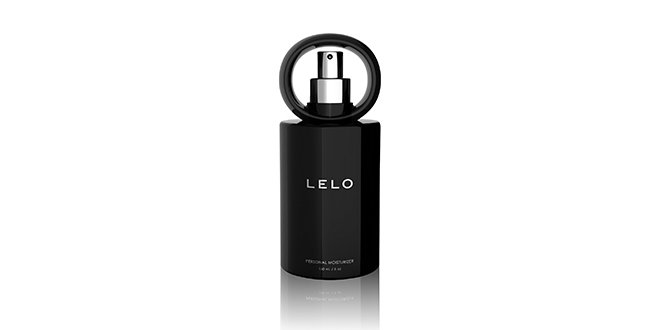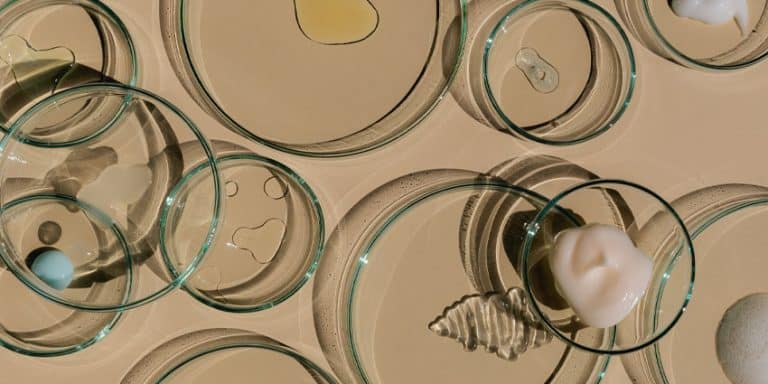 This article was scientifically reviewed by Human Sexuality expert Dr. Laurie Mintz. She is a professor, researcher, private practitioner and Fellow of the American Psychological Association.
This article was scientifically reviewed by Human Sexuality expert Dr. Laurie Mintz. She is a professor, researcher, private practitioner and Fellow of the American Psychological Association.
Website | Academics | Instagram
While the word ‘lube’ might conjure up memories of questionable frat-hosted wrestling events or comically over-sized tubs of jelly on a porn set, using lube is one of the best things you can add to your bedroom play—solo or otherwise.
But why are people so hesitant to use lube? Below, we tackle some of the misconceptions surrounding personal moisturizers, and what exactly makes them so fantastic.

Why Should I Use Lube?
Simply put, personal lubricant just plain makes things feel a lot better. It adds a slickness that can be used for external stimulation before natural lubrication arrives on the scene, or if you find yourself too dry for comfortable penetration. It can be used during masturbation, partnered sex, oral, or even to help insert your menstrual cup—lube should be used whenever possible to make things feel more enjoyable.
You should definitely be using lubricant during anal play. Unlike the mouth or vagina, the anus won’t self-lubricate, and not using any during penetration (toy or otherwise) is not only uncomfortable, but it can also cause micro-tears that leave you vulnerable to infection.
Lube is also a must for men using masturbation sleeves. No matter which kind you try, from the most basic pocket pussy to the most technically advanced masturbation sleeve on the market, they definitely don’t lubricate themselves. To facilitate the best experience from whatever sleeve you choose, make sure to apply a liberal amount of lube.
Does Needing Lube Mean I’m ‘Broken’?
Many women worry that needing lubricant for vaginal sex means there’s something wrong with them.
Here are the basics of natural vaginal lubrication. When you get aroused the walls of one’s vagina start secreting fluid in anticipation of penetration to help mitigate friction. The amount of fluid produced varies from person to person, and changes slightly depending on where you are in your monthly cycle.
Not ‘getting wet’ may be a sign of lack of arousal, which can often be helped by extended foreplay, but you can find yourself completely rarin’ to go mentally, but still dry. Vaginal dryness can also be caused by things like menopause or the type of oral contraceptive that you’re taking.
Generally speaking, it’s worth it to take your time to make sure you’re fully aroused before engaging in penetrative sex – both because it’s more comfortable and just plain more fun – but not every body behaves exactly the way we want it to 100% of the time. Vaginal lubrication is an unconscious bodily response that is designed to protect your body from the physical discomfort it anticipates, so getting wet – or not – is not a complete indicator of our state of mind.
If you otherwise find yourself turned on, extra stimulation via oral sex or using an external vibe can help, but guess what makes clitoral stimulation feel all the more enjoyable? Lube!
How Do I Use Lube?
Using lube is almost as easy as squirting some on and going – almost. Personal lubricants come in all sorts of inconsistencies (more on that below) and can end up being a little messy if you’ve squirted out too much. It’s best to start with a dime-sized dollop and work your way up from there.
You can apply lubricant straight to your vulva or penis, or put it on your fingertips and apply it with your hand. When applying lube to a G-spot vibrator or to a condom – this can help prevent tears – take your time to apply thoroughly to the entirety of the surface. Don’t think of this as a time-consuming chore; it can be pretty sexy if you make it!
What Type of Lube Should I Use?
While you may be tempted to use anything you have around the house as lubricant, there are many, many reasons why this isn’t a great idea. Things like baby oil are not designed for internal use and will not be designed for the natural pH of your body. Coconut oil is a popular natural lubricant that certainly adds a delicious aroma to the bedroom, however it – like all oil-based lubes – will degrade condoms and dental dams, and thus should not be used if that is your primary method of contraception or used to prevent transmission of STIs
When it comes to lubricants created especially for sex, there are a few different options, but usually they will either be water-based or silicone-based.
Water-based lubricants tend to be the most widely recommended as they tend to be the most hypoallergenic. Because you use lube on your most sensitive parts, generally the fewer ‘fun features’ like flavor or warming, the better. Many such products contain glycerin, which is a metabolic byproduct of sugar – which can be a recipe for a yeast infection. While it doesn’t guarantee that, you may want to avoid them, though if used for oral, flavored lubes can make things downright delicious!
Silicone-based lubricants have their pros and cons. On one hand, they tend to ‘last’ longer (because they don’t absorb as easily into the skin) which can make them preferable for anal play. However, silicone lubricants don’t always play nice with your sex toys and can degrade their surfaces.
Quality brands like LELO only use 100% medical grade silicone or ABS plastic in their toys, and water-based lubes are your best bet to keeping your quality sex toys in prime condition.

